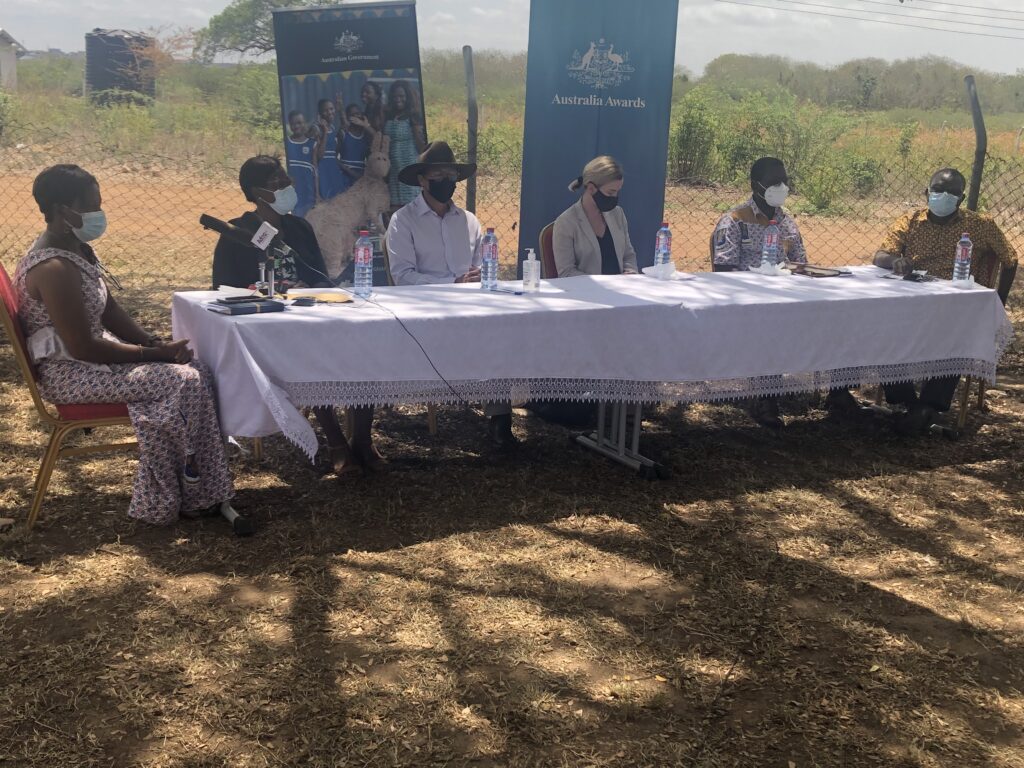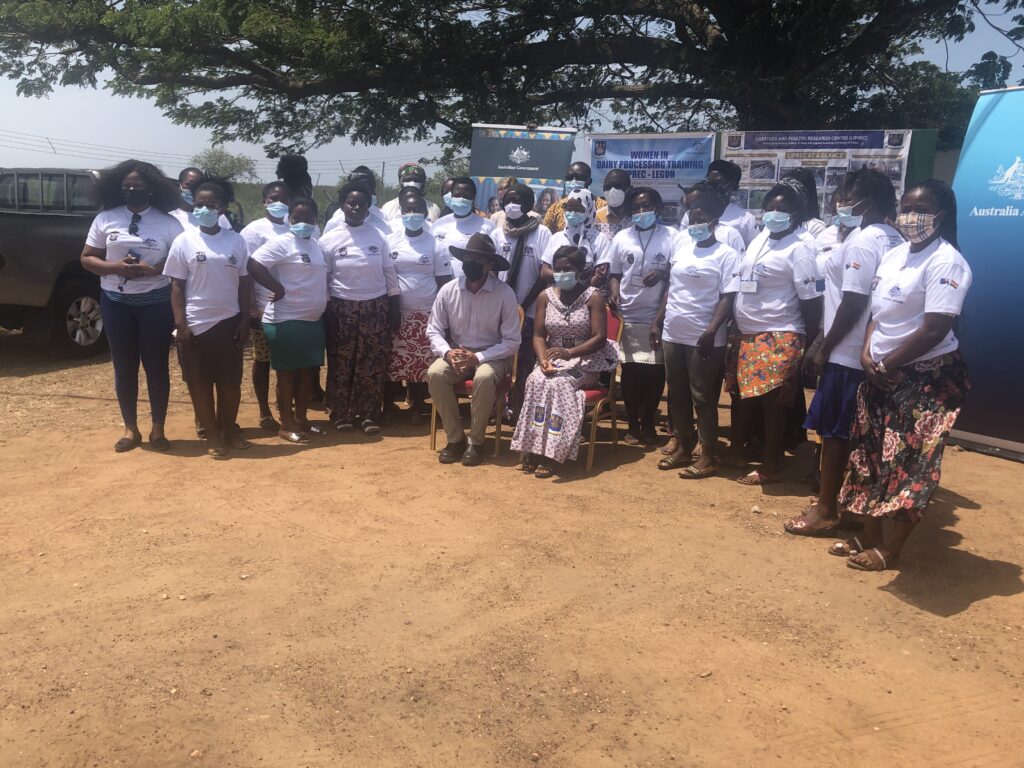The University of Ghana Livestock and Poultry Research Center has begun the training of some twenty-five vulnerable women in Ashaley Botwe, where the center is located, in dairy production.
The women would during the five-day session be equipped with skills in yoghurt making, cheese making, etc as part of the project themed ‘Women in dairy processing’.
They would also be educated on how to start up their businesses, get hands-on information on getting the Food and Drugs Board accreditation as well as that of the Standards Authority.

Principal Assistant Farm Manager for the center Mrs Martha Adjorlolo in 2019 won the Australian scholarship for a short course in agribusiness. As part of the sponsorship, beneficiaries of the scholarship are to influence their communities positively by passing on the knowledge they have acquired to others in the community.
The grant provided birthed the ‘women in dairy processing’ initiative.
Speaking at the opening ceremony Monday, May 18, Mrs Adjorlolo said “the unemployment situation has increased due to Covid-19. The situation has brought hardship to several households, further deepening the poverty situation in our country by almost eleven percent in just a year.”
“One major vulnerable group suffering the effect of unemployment are skilled women who do not have a viable means of livelihood and tend to suffer not only from poverty but also domestic abuse. Skilled training of women has been recognized as an important means of enhancing their livelihoods and providing a route out of poverty.”
She went on “it is important to train women in skills that they excel in and we know that dairy processing is one of those skills that will help these women excel and prove their livelihoods.”

“This training aims at training twenty-five vulnerable women in dairy processing with focus on milk handling, processing of milk into yoghurt soft cheese, safety policy and some management tips, food marketing tips and training in women empowerment,” she added.
The Dean of the College of Basic and Applied Sciences Prof Daniel Bruce Sarpong reading a speech on behalf of his Provost Prof Daniel Asiedu said “one of the objectives of LIPREC is to establish close collaboration with national and international institutions, NGO’s and industries that are committed to research and training into various aspects of livestock and poultry production and processing.”
“Our presence here indicates that the center is indeed living up to its expectations. To our women who have the opportunity to be trained in diary processing, I say Ayekoo to you. I guess the Covid-19 pandemic has taught us that agribusiness is a means of livelihood that continues to thrive. Whiles other businesses were shut down in the pandemic, those in agribusinesses were asked to continue to operate.”
He added “this shows that the choice we have made is the right choice. Take the training seriously so you can make a living through the processing of dairy products.”
Australian High Commissioner to Ghana H.E Gregory Andrews noted “something that I didn’t imagine that I would find in Ghana, what I always tell people in Australia, is your dairy products. Actually, your ice cream is really good, and your yoghurt. And I’ve tasted the yoghurt here before and it’s really good. And there are very few places in the world like the tropical places where you find excellent dairy. Europe, Switzerland but I have to tell you Ghana has really good dairy.”
He intimated that to achieve sustainable development goals, every country has to play its part. “So, part of ours is to support countries like Ghana that have rich and prosperous soils and healthy people with lots of energy to combine together to create sustainable economic development and to reduce poverty.”
“So, it’s our responsibility to be supporting you and that’s an honor. Economic development and value-adding is something I know that is really important here in Ghana.”
He added “for Ghana to continue to grow, become a more developed country and to reduce poverty and include everyone, we need to add value to Ghana’s fantastic primary resources, your agriculture. So, in a small way what we are doing here is to add value. We are adding value to milk by making it yoghurt.”
“And I’m really pleased that in addition to that, what we are doing is we are contributing to gender empowerment by supporting twenty-five women to go back to their communities and do that.”
Head of the Center Dr Timpong-Jones giving insights on the center said “the center has been in existence since 1953 and focuses on livestock and poultry research, training and production. The center is a huge resource for the practical training of staff, graduates and undergraduate students of the school of agriculture, of the college of basic and applied sciences, University of Ghana.”
“The training is into all aspects of animal production and research. We offer short courses to relevant stakeholders, we train young and would-be farmers. Our research is into six pragmatic areas and they are animal improvement and production, animal nutrition and feeding, animal health, animal traction, livestock produce processing, and agribusiness.”
A beneficiary Mrs Priscilla Naa Atswei Plange highlighting her expectations as she got into the training noted “I’m very thankful for the opportunity to be here today to learn. My expectation is to learn the yoghurt production with the aim of teaching others.”
“I work with a group of community women as well. My aim for coming here is not to only learn and start a small business but to equip myself with the skills and then support others.”
She added, “so, by Friday I hope and aim to be a yoghurt manufacturer.”
Source: Ghana/Starrfm.com.gh/103.5fm




